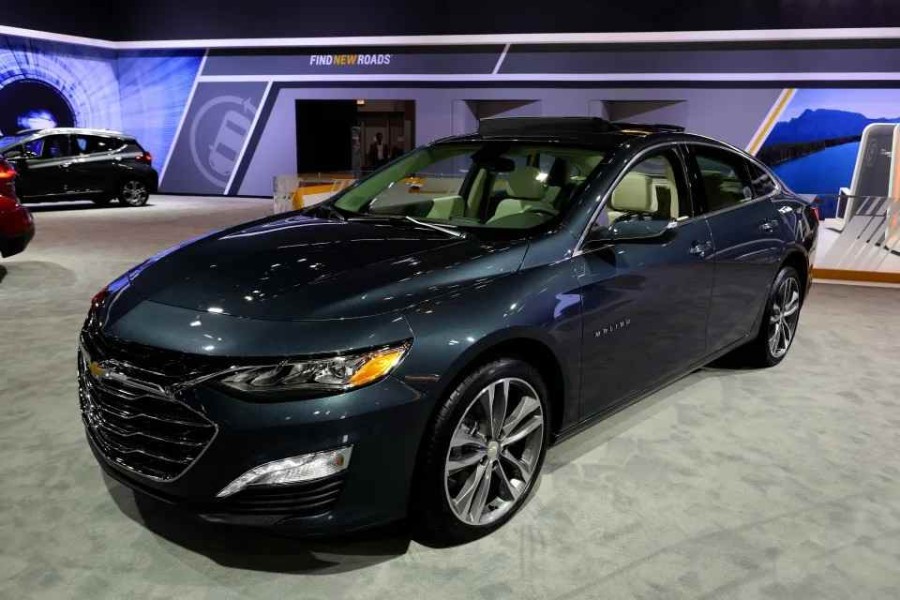America's love affair with the SUV is killing the trusty sedan

collected
The Chevy Malibu has gone the way of the dodo. The long-running Malibu nameplate has had two separate runs with Chevrolet, with its first stint dating back 50 years. GM sold 10 million Malibus during its time, but in recent days it's a rarity — a sedan.
GM discontinued the Chevy Malibu, once a staple sedan, due to shifting consumer preferences towards SUVs and crossovers. Despite this, there's speculation that GM might reintroduce the Malibu nameplate as an electrified sedan to adapt to evolving market demands.
GM (GM) said the Malibu factory space will now be devoted to making more crossovers, SUVs, and EVs.
“The Chevy Malibu fell victim to consumers’ shifts from traditional sedans to crossovers of all shapes and sizes. GM also needed room at its Kansas City factory to build the next-generation Chevy Bolt EV,”
Case in point: Take a look at any mall parking lot or airport pickup zone, where SUVs and sporty crossovers dominate the terrain. (Disclosure: Autoblog is owned by Yahoo Finance parent Yahoo.)
"Crossovers are a simple choice for many consumers. They do many things well, combining functionality with agreeable driving dynamics to reach a wide swath of the market," Migliore adds. "Broadly speaking, the crossover segment is the appliance section of the car business: a safe choice you don’t need to think about too much."
While mainstream automakers like Toyota with the Camry, Honda with its long-running Accord, and Hyundai with the Sonata soldier on with midsize sedan sales, GM, Ford, and Stellantis have, for the most part, exited the market due to dwindling sales. The Japanese and Korean automakers produce sedans because they can make money on them through cost efficiencies and scale, but that pie is getting smaller.
Sales data provided to Yahoo Finance from automotive research site Edmunds.com shows that from 2019 to 2023, the overall market share of new “cars” (made up mostly of sedans, but also coupes) sold in the US fell by nearly a third, from 27.1% to 20.5%. In particular, midsize cars fell from a market share of 8.2% to 5.8%, and that of compact cars fell from 8.8% to 6.1%.
Meanwhile, the overall sales of SUVs ballooned to 56.3% in 2023 from an already robust 48.5% in 2019, basically taking over half the market. Gains were across the board, with notable moves in compact SUVs (18.8% from 17.9%) and midsize SUVs (16.6% from 15.9%).
"Popularity of sedans has steadily declined as carmakers have expanded and enhanced their SUV portfolios across multiple segments and budgets," said Joseph Yoon, Edmunds' consumer insights analyst, to Yahoo Finance. "Customers have signaled loud and clear with their wallets that they crave an elevated seating position and the perceived added utility in every segment, whether they need it or not."
Despite the perception that SUVs are generally more practical and Americans’ predilections for big, brutish SUVs, the sedan body still has a lot to offer consumers. Size-wise, the Camry and Accord can sit four to five adults comfortably, with trunk space that can swallow up several full-size suitcases, comparable to a midsize SUV.
With their smaller footprint, more aerodynamic body, and overall smaller weight, sedans are more fuel efficient than similarly sized SUVs and crossovers and emit less pollutants. According to the latest EPA automotive trends report, truck-based SUVs produced a whopping 364 grams/mile of CO₂ emissions, whereas cars produced 260 grams. While overall miles-per-gallon levels are improving for SUVs versus cars, they still tend to pollute more.
In addition, better aerodynamics, less weight on the wheels, and a lower center of gravity can mean better on-road performance. Sedans like the high-performance BMW M5 and Cadillac CT5-V Blackwing can run circles around the sportiest SUV.
In the upper echelons of the auto market, some sedans continue to thrive because of their strong performance, size, and looks. The aforementioned BMW M5 isn’t going anywhere, and the CT5-V Blackwing has been a sales winner for Cadillac.
Sedans also tend to be more affordable. Edmunds' data finds that the transaction price for midsize cars like a Camry or Accord averages $32,029, compared to $48,706 for a midsize SUV like a Kia Telluride or Jeep Grand Cherokee.
Even Stellantis' Dodge Charger sedan is still seeing sales success in its last model year compared to the Malibu.
“Ford and Chevy haven’t been able to win with sedans in years, so [killing the Malibu] is a logical move. But all they have to do is look across town at Dodge and the success the Charger has had for two decades to see how a distinctive product can make consumers want to buy an American sedan,” Migliore said.
Migliore notes even after its cancellation, the Malibu name could make a comeback in a revised form (again).
Perhaps GM will split the difference and give weary sedan fans a rejuvenated Malibu. After all, if the venerable Mustang name can be repurposed as an electric crossover, why can’t there be an electrified Malibu sedan for the 21st century?
Source: https://finance.yahoo.com
Tags :
Previous Story
- Toyota recalls 50,000 US vehicles over airbag 'injury...
- Tata Motors urges India to keep hybrid tax...
- Toyota September production jumps on stronger Japan output
- Toyota lobbies India to cut hybrid-car taxes as...
- This Butt Plug Will Allow Toyota To Build...
- Toyota's Japan production at standstill as system failure...
- Toyota's new Land Cruiser '250' makes world premiere
- Explainer-How could solid-state batteries improve next-gen EVs?